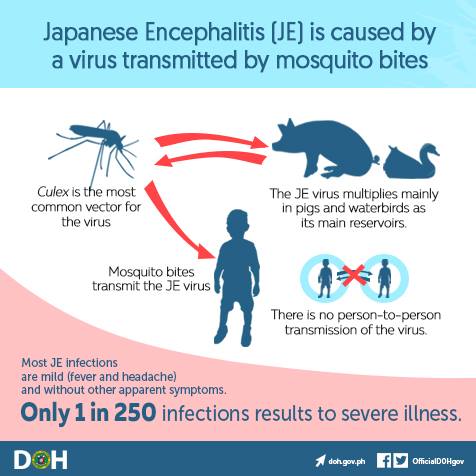There has been a heightened awareness of Japanese Encephalitis (JE) in the Philippines recently prompting an increased health seeking behavior such as in Pampanga, a province north of Manila where 32 confirmed JE cases were recorded. This has resulted in a rise in demand of the JE vaccine.
However, Philippines Department of Health (DOH) officials say that there is presently no outbreak of JE in the country. In fact, as of 26 August 2017, the DOH-Epidemiology Bureau recorded a 44% decrease of laboratory confirmed JE cases (133 cases total) all over the country as compared to the same time period last year.
Health officials are cautioning the public on the use of the vaccine at this time. DOH Assistant Secretary Dr. Eric Tayag discouraged the public from taking JE vaccine shots during the rainy season, which is considered the disease’s peak season, citing the low probability of the vaccine taking effect when it is administered during the period.
See New York from the water and enjoy up to 46% off cruises!
The SunStar Pampanga reports Tayag as saying,”There is no known benefit of the vaccine when given during the peak season. Thus, the DOH cautions private practitioners not to offer JE vaccines during this period.”
Imojev, the only available brand of JE vaccine in the country, ranges from P2,500 ($50) to P4,000 ($80) per shot depending on the hospital where it is found. He said vaccine is now running out of stock in the market due to the sudden rise in demand following the series of reported death cases and rise in the number of patients in the past months.

There has been nine JE-related deaths reported so far this year, most from Central Luzon.
The DOH is firming up plans to introduce JE vaccination among young children in 2018.
The DOH does call on the public to intensify mosquito prevention and control measures at home and in the community, and to protect themselves from being bitten by mosquitoes, particularly in high-risk areas. As the country moves further into the rainy season, there is typically a rise in mosquito borne diseases such as dengue, chikungunya and now Japanese Encephalitis (JE).
The hallmark of JE prevention, like dengue, should focus on identification and destruction of mosquito breeding sites and environmental cleanliness.
Related:
- 13 Diseases You Can Get From Mosquitoes
- Japanese encephalitis confirmed in Davao City
- Philippines: Leptospirosis cases up, dengue cases way down
- Philippines: No human bird flu cases so far, Duterte dines on Pampanga poultry
- Cebu reports 9 human rabies deaths
- Cholera outbreak sickens scores in Albay
- Ayoko sa Lamok: Filipino youth’s battle against dengue fever
- Traveling to the Philippines: preventing infection



